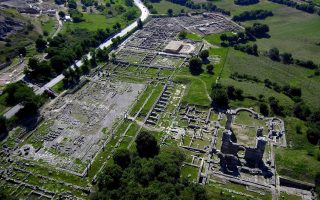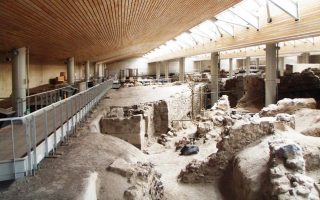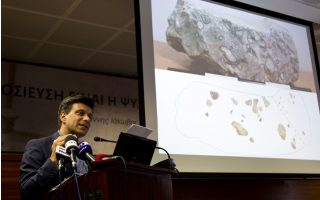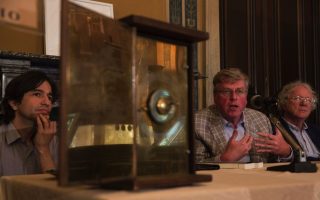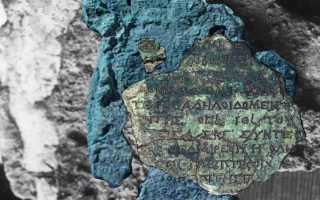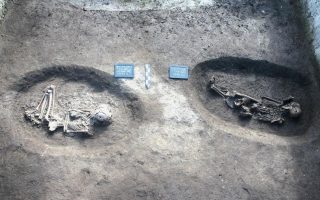Unique, Roman-era mosaic of Hercules’s Labors to go to Larnaca museum

A newly uncovered Roman-era mosaic in Cyprus depicting Hercules’s Labors will be transferred to a new, dedicated wing of a museum in the coastal town of Larnaca, where crews accidentally discovered it while working on the sewage system, a Cypriot official said Thursday.
The 19 meter by 7 meter (62 foot by 23 foot) mosaic cannot stay in place because it would incur damage from water and the elements, Communications Minister Marios Demetriades said after visiting the site. “It’s a unique mosaic and we have to exhibit it in the most appropriate way,” he said.
The mosaic appears to be part of a baths complex, Antiquities Department Chief Marina Solomidou-Ieronymidou said, adding that it has five sections but only two have been fully uncovered. Crews may have to encroach on private property to unearth more of the baths complex.
Solomonidou-Ieronymidou said it’s the first time that a mosaic has been discovered on the eastern Mediterranean island depicting the 12 Labors of Hercules, difficult tasks that the mythological demigod had to perform as penance for killing his wife and children when the goddess Hera made him temporarily insane.
The Antiquities Department says the mosaic’s discovery offers important evidence that ancient Kition, on which modern-day Larnaca is built, played a significant role in the establishment of Roman culture in the Mediterranean island of Cyprus. Very few remains of Roman-era structures have been found in the city.
Cyprus is also famed for floor mosaics from a 2nd-century AD Roman villa in the western coastal town of Paphos that featured the ancient Greek god of wine, Dionysos.
Cyprus was under Roman control from 31 BC to the 4th century AD. Its earliest known inhabitants date back some 11,000 years ago.
The island had been colonized by Mycenean Greeks in the 11th century BC and had been ruled by the Assyrians, Egyptians, Persians, Byzantines, Lusignians, Venetians and Ottoman Turks. Cyprus gained independence from British rule in 1960.
[AP]
